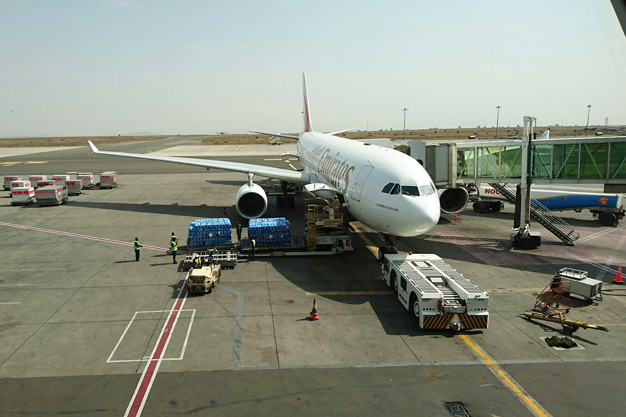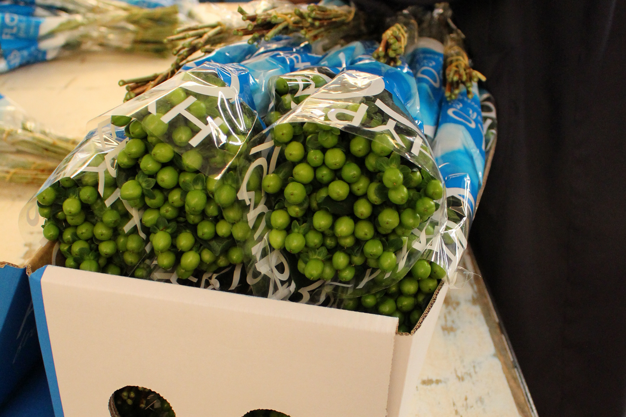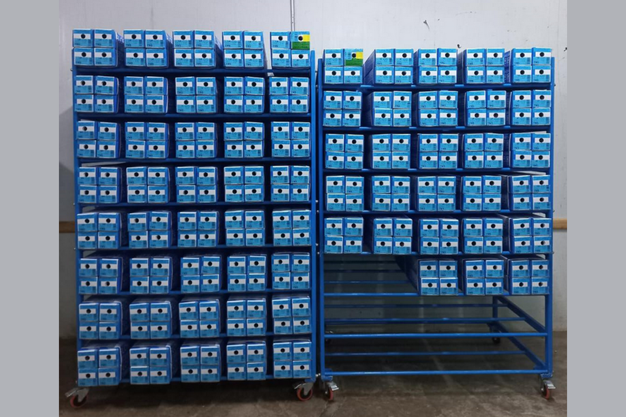"Liege Airport (LGG) has the potential to become Europe's largest air cargo flower hub," says Willum van den Hoogen, Managing Director at Florius International FZCO, a flower supplier with farms in Ethiopia, Kenya, and Colombia. Being impacted by reducing air cargo capacity at Schiphol Airport (AMS), the company has been looking for efficient transport routes that don't compromise on the quality of flowers. Van den Hoogen gives insight into the current situation and explains why and how Liege may step up as an alternative to Schiphol.

Florius boxes being loaded onto an airplane
Capacity issues
Although a considerable quantity of flower cargo still arrives in Europe through Schiphol Airport, the last 10 -15 years the situation is changing, van den Hoogen states. He points out that the flower industry currently struggles with reduced numbers of freighter slots. Last year Joost van Doesburg, Head of Cargo Royal Schiphol Group, mentioned that Schiphol won't expand its flower cargo handling capacity as the airport focuses on cargo quality rather than cargo quantity.
Van den Hoogen also mentions that the current situation in the Suez Canal and e-commerce put increasing pressure on the availability of cargo capacity. "Due to sea traffic disruptions in the Suez Canal, sea freight for products requiring fast supply chains is currently on hold, with exporters from East Asia increasingly opting for sea-air combinations. Additionally, an increase in freighters in Hong Kong and Shanghai combined with the popularity of e-commerce made some freighters decide to fly east-west rather than north-south. This impacts the flower industry because freighters who fly north-south often take flowers on return flights from African and Latin-American countries. On top of that, freight rates increased about 15-20% in a few months."
Liege Airport and its handling infrastructure
According to van den Hoogen, these and other factors made that we already see a large part of today's flower cargo arriving in other airports including Liege Airport. To illustrate, he adds that on certain days, Liege Airport receives 7 full freighters filled with flower cargo. He finds that these volumes among others indicate Liege Airport's flower hub potential, saying: "The air cargo flower volumes are already there; freighters can land 24/7, there are lower landing fees, fewer noise and environmental restrictions, and there is availability of land and labor."
Nevertheless, he believes that the airport's handling infrastructure is not yet tailored to perishable products such as flowers. "Currently, the airport's objective is to quickly send the flower cargo to Aalsmeer/Amsterdam. This focus on speed comes at the expense of flower quality. I have seen that flowers were placed in uncooled warehouses where temperatures reached above 20 degrees. The ideal temperature for storing flowers is about 1 degree Celsius. The airport community should substantially invest in cooling infrastructure, if it does so I think there are many opportunities ahead."

Towards cooled and dry-packed flowers?
Van den Hoogen believes that not only Liege Airport's community willingness to invest, but also the industry's approach to the supply chain plays a role. "For long, the industry too has focused on quantity rather than quality. However, cold-stored flowers are high-quality flowers. Importers and exports shouldn't accept flowers that have been stored and transported in temperatures above 5 degrees Celsius."
Similarly, he argues that an improved cool-chain can eventually benefit the entire logistical process. He provides the example of the US flower trade: "Unlike the Netherlands, most flowers in the US are dry-packed and cold. Dry-packed flowers involve less handling and thus contribute to a more efficient process."

Florius shipment boxes
He concludes by saying: "Schiphol Airport offers an excellent cold chain, however has an increasingly limited flower cargo capacity. This means that the industry would benefit from an alternative. I would like to emphasize that Liege Airport could be this alternative and that everyone can benefit from it."
For more information:
Florius
[email protected]
www.floriusflowers.com










